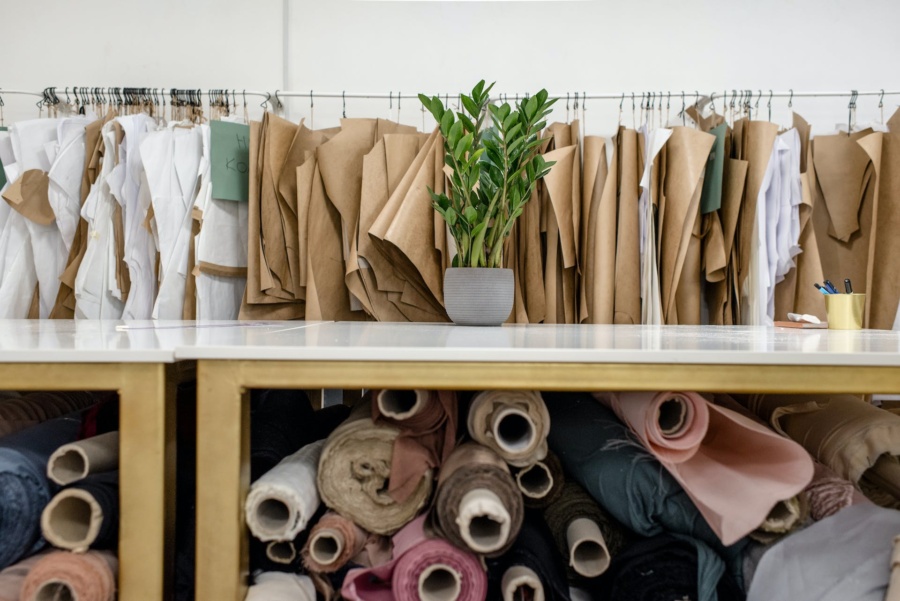Subject Spotlight: Fashion
What is Fashion?
Welcome to the vibrant world of Fashion, a discipline that combines creativity, cultural understanding, and business acumen. Studying Fashion can lead you to a colourful career that shapes the way people express themselves and perceive the world.
Fashion is a field that revolves around the creation, production, and marketing of clothing and accessories. It’s an art form and a business, reflecting cultural trends and individual identities while driving economic activity. From designing unique pieces to managing fashion brands, the industry offers a wide range of roles for creative and business-minded individuals.
Why Study Fashion?
Choosing to study Fashion offers several benefits:
- Creativity: Fashion allows you to express your artistic vision and bring your ideas to life.
- Cultural Impact: Fashion plays a significant role in cultural and social trends, offering a platform for commentary and change.
- Career Opportunities: The fashion industry offers diverse roles, from design and production to marketing and retail.
What’s it like to study Fashion?
Studying Fashion involves learning about design principles, textile science, pattern-making, and fashion history. You’ll also delve into areas like fashion marketing and business practices. Learning experiences often include hands-on projects, industry internships, and opportunities to showcase your designs.

What Can You Do with a Fashion Degree?
A degree in Fashion can open the door to a variety of exciting careers. Here are some potential career paths:
- Fashion Designer: Fashion designers create original clothing, accessories, and footwear. They sketch designs, select fabrics and patterns, and give instructions on how to make the products they design.
- Fashion Merchandiser: Fashion merchandisers work with designers and stores to choose which styles should be sold. They analyse fashion trends and keep track of inventory, ensuring that stores have a selection of clothing that meets the demand and interests of customers.
- Fashion Marketer: Fashion marketers work on promoting a fashion brand to its target audience. They may organise advertising campaigns, plan promotional events, or develop social media strategies to build brand awareness and attract customers.
- Fashion Journalist: Fashion journalists write about the latest fashion trends, news, and designers. They may work for magazines, newspapers, websites, or television channels, and their role often involves attending fashion shows and interviewing industry professionals.
- Stylist: Stylists help clients improve their image by selecting clothing and accessories that suit them. They may work with individuals, fashion brands, or media productions.
- Visual Merchandiser: Visual merchandisers create attractive displays in store windows or interiors to attract customers. They arrange clothing, accessories, and props and choose lighting and other elements to set the desired mood.
Each of these roles requires a strong foundation in fashion principles, along with creativity, an eye for detail, and an understanding of current trends. As you progress in your career, further qualifications and professional certifications may open up more specialised opportunities.
Professional Bodies for Fashion
Organisations like the Council of Fashion Designers of America (CFDA) and the British Fashion Council (BFC) offer resources, certifications, and networking opportunities for professionals in this field.
Careers for Fashion Graduates
Graduates can work in various sectors of the industry, such as design, production, marketing, retail, and media. They may create their own fashion lines, manage fashion brands, curate fashion exhibitions, or write about fashion trends.
Skills that Fashion Students Need
Students in this field need strong creative skills, an eye for detail, a good understanding of colour and texture, and practical skills like sewing and pattern-making. Knowledge of fashion trends, business acumen, and strong communication skills are also beneficial.

Typical Degree Titles that are Fashion Focused
Degree titles in this field include Bachelor of Arts in Fashion Design, Bachelor of Science in Fashion Merchandising, and Master of Fine Arts in Fashion Design. Some programs offer specialisations in areas like sustainable fashion, luxury brand management, or fashion journalism.
By completing an NCUK qualification, you have access to a wide range of Fashion courses with our University Partners. Find more information about the wide range of courses, the universities offering them and the entry requirements using our course finder.